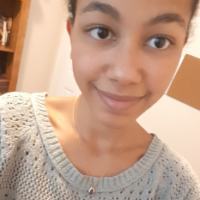Scientists think that children have a “toolkit” that helps them make a guess about a new word’s meaning. That toolkit has strategies like shape bias and mutual exclusivity. Shape bias means that children are more likely to extend the meaning of a word to new objects that have similar shapes than they are to objects that have other similar features, like color or size. Using mutual exclusivity allows children to assume that there is one name per object and one object per name. Another one of these strategies is called the whole object assumption, which is the idea that children who are presented with a new object and a new word are likely to assume that the new word refers to the whole object, and not just a piece of it.
For example, if a child, who has not learned the word truck, is presented with a toy truck and a new word, they are most likely to assume that the new word refers to the whole toy, and not just the wheels or the doors.The whole object assumption means that when children learn new words they most likely assign meaning to be an entire object. However, if they already know the word truck, then they may guess that the new word refers to a more specific piece of the truck because of mutual exclusivity.

The whole object assumption and mutual exclusivity often work together in this way to allow children to make the best guess about what new words mean. This can help kids who are just starting to learn words by limiting the number of possible meanings of new words. However, it isn’t the only strategy that they may use, since they will eventually need to learn words for the pieces of objects.
Reference
Woodward, A. L. (1992). The role of the whole object assumption in early word learning (Order No. 9221687). Available from ProQuest Dissertations & Theses Global. (304027016). Retrieved from https://login.proxy.lib.duke.edu/login?url=https://www.proquest.com/dissertations-theses/role-whole-object-assumption-early-word-learning/docview/304027016/se-2?accountid=10598

Jasmine Pflepsen
Author
Jasmine is a senior majoring in Linguistics and minoring in Russian and French. She is most interested in multilingual language acquisition and how language acquisition interacts with literacy. Here at Duke, she is a QuestBridge Scholar, a Teacher’s Assistant and a Head tutor with ARAC, a member of the Global Citizenship and Ethics LLC. Outside of school, she likes cooking and watching Netflix, and she has recently started taking a ballet class. After graduation, she hopes to pursue further studies in linguistics.
Elika Bergelson
PRincipal Investigator